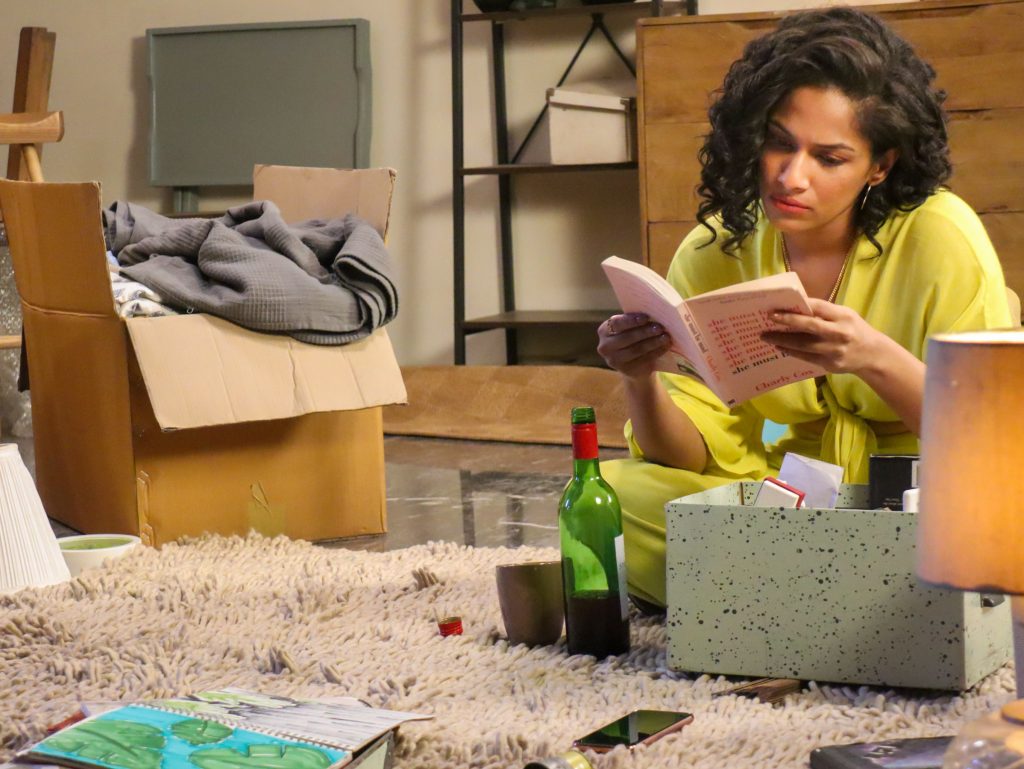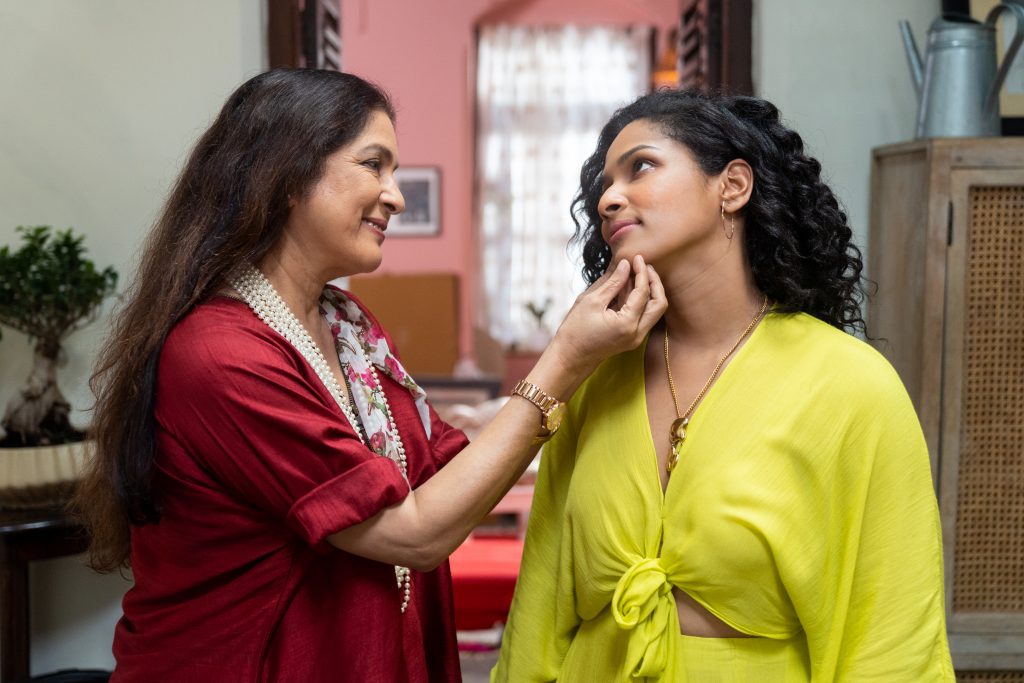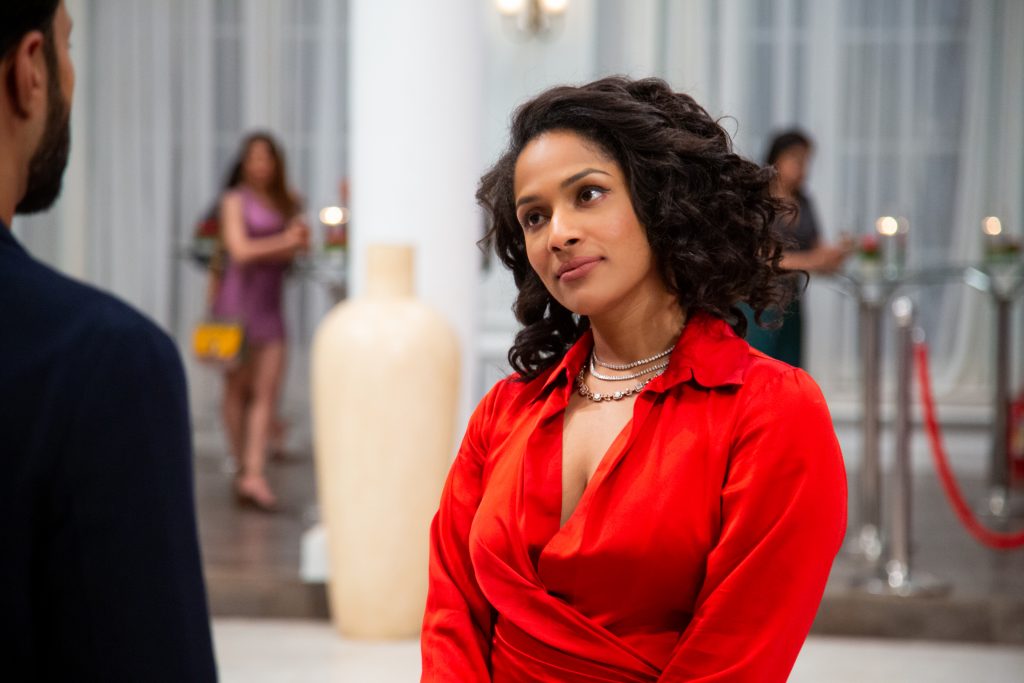
[Featured Image Credit: Netflix]
This long weekend, I spent five consecutive hours binging “Masaba Masaba,” Sonam Nair’s semi-autobiographical, but wholly dramatic account of fashion designer Masaba Gupta’s life. The six-episode Netflix series is infused with witty dialogue, punchy music, and eclectic fashion that is reminiscent of our “Sex and the City” sartorial obsession. Despite its glitz and glamour, it is impossible to ignore the core duo that is Masaba and Neena Gupta, who play themselves. Watching this show with my own mom, I was drawn to the intimate, yet realistic mother-daughter relationship presented, alongside different friendship and love dynamics.
There is however, one unspoken ‘character’ that observes a more omniscient presence throughout the show: social media. I was fascinated by how “Masaba Masaba” implicitly explores a multi-generational relationship with social media. The show is self-reflective of its own format as there are ‘Instagram intermissions’ and narrated captions that drive Masaba’s personal journey and relationships. These Instagram ‘post scenes’ punctuate the humorous plot, whilst also acting as a gallery for the different characters’ successes and failures.

“Masaba Masaba is reality with beautiful clothes on.”
This perfect analogy is also applicable to how modern users tend to utilize apps like Instagram – posting one’s best hits with a varying dosage of reality. Social media can often feel like an idyllic window, showing greener pastures. It exists as a fabricated world of jet-set holidays and non-repetitious wardrobes. Is it fully a fantasy?
I believe “Masaba Masaba” grapples with this question throughout, showcasing different characters’ associations with social media. The lead, Masaba, repeatedly reminds us that social media can regress back to its fundamental purpose: an accessory to our life, not a driving factor. It is increasingly difficult to draw a firm line of separation between what is our consciousness and what is ‘media-motivated’. We seek a sense of social validation, and often, our careers can depend on it too, e.g. Masaba’s investors show constant concern about how well her designs perform in the digital sphere. However, the show’s intimate relationship with social media exists to show us how it can be utilized to show both the highs and the lows, with the very first episode titled “Rumour Has It.”

The show confirms that social media’s Gatsby-esque illusion must be brought to a screeching halt. In its final episode, Masaba posts a bold message following the chaotic and disastrous fashion show:
“I was striving so hard for perfection that I forgot what the collection actually stands for. Presenting the HOT, the MESSY and the real women of @HouseofMasaba in a collection that’s all about celebrating imperfections. #hotmess.”
Looking upon “Masaba Masaba” for inspiration, one message becomes overwhelmingly clear. We are all hot messes, despite if we post about it or not. The ability to live one’s most authentic life lies in one’s reaction to, or utilization of media. By episode 6, we understand that with Masaba: rumours are gossip, only you will know the truth. Online trolling is upsetting, but you can control how much you let it affect you.

There is then a beautiful dichotomy of social media moments. We watch digital fumbles: Masaba accidentally revealing her BDE theory about her investor Dhairya Rana, to Dhairya. We watch tech triumphs, when the Hot Mess collection is modeled and advertised on social media by the House of Masaba team, boosting its popularity. There is also the extraordinary act of courage shown by Neena, who utilizes social media to find acting work, whilst simultaneously admitting her struggles to find a suitable job. This paints a bigger message about the courage required to actually use social media. Clicking, filtering, and posting can seem menial to our generation but we seldom think about the role interactive media plays on older generations. It’s refreshing to see this explored so positively in the show. Interestingly, there’s the familiar sight of Neena asking Padma which photo is best to post proving that social media indecisiveness can be trans-generational.
[Read Related: Janhvi Kapoor on ‘Gunjan Saxena: The Kargirl Girl’ & Playing Strong Female Roles in Bollywood]
These moments in in the series, although fictitious, reflect real life experiences and emotions we have all faced. They reflect upon the idea that social media can be double-edged sword, one that can feel uncontrollable, even to the owner. However, in the spirit of new collections, new homes, and new starts, I finished “Masaba Masaba” with a new role model to admire, and a new attitude to adopt – resilience and honesty.




